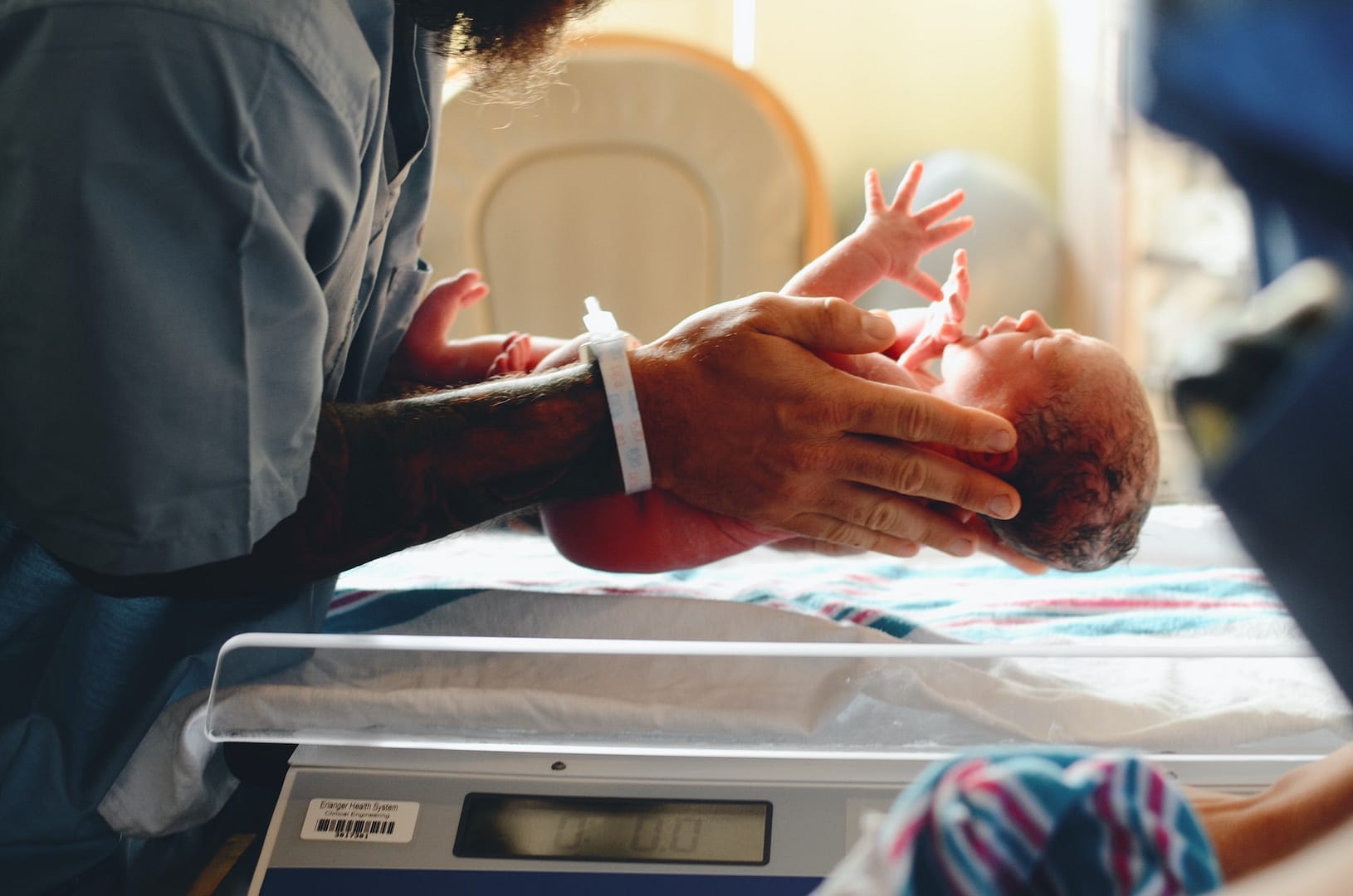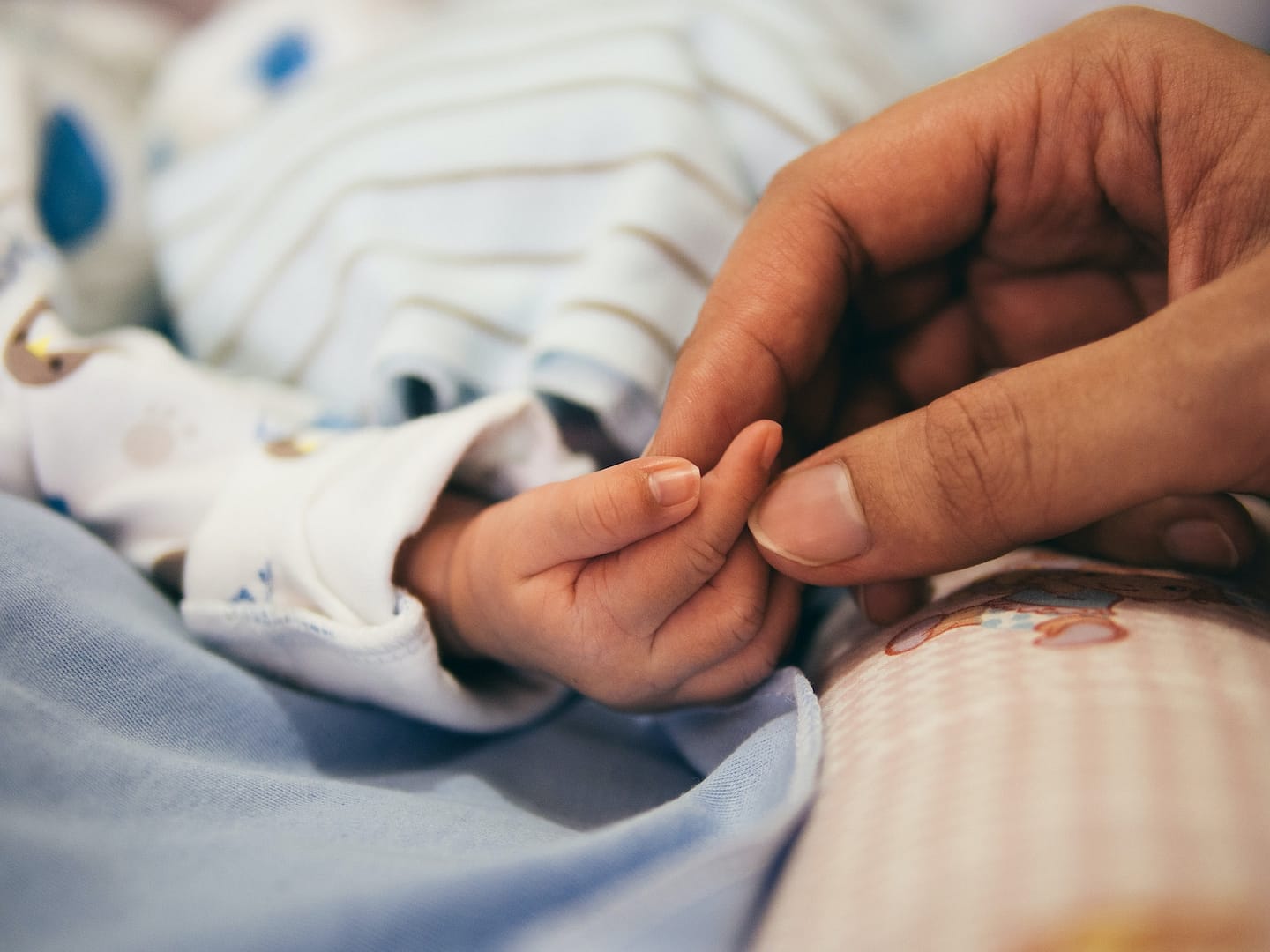Childbirth is a profound and life-changing experience, marking the beginning of a new chapter in the lives of parents and their new-borns. While it is often a time of joy and anticipation, it can also be fraught with risks and complications. In some unfortunate cases, clinical negligence during childbirth can lead to birth injuries, leaving families grappling with emotional and physical challenges. In this article, we will delve into the world of clinical negligence during childbirth, exploring what birth injuries are attributed to clinical negligence and what constitutes maternity negligence in the United Kingdom. We also delve into how best to start your clinical negligence claim.
The Miracle of Birth: A Fragile Beginning
The birth of a child is undoubtedly one of the most remarkable moments in the journey of life. It is a time when parents eagerly await the arrival of their little one, filled with dreams and aspirations for their child’s future. However, this beautiful journey can sometimes take an unexpected and distressing turn when clinical negligence rears its ugly head.
Birth Injuries Due to Clinical Negligence
Clinical negligence during childbirth can result in a range of birth injuries, some of which can have long-lasting and devastating effects on the child and their family. These injuries are often a result of medical professionals failing to meet the standard of care expected during labour and delivery. Let’s explore some common birth injuries linked to clinical negligence:
Cerebral Palsy
Cerebral palsy is a neurological disorder that affects a person’s ability to move and maintain balance and posture. It can be caused by oxygen deprivation during birth, often due to medical staff failing to detect and address foetal distress promptly. This condition can result in a lifetime of physical and developmental challenges for the child.
Erb’s Palsy
Erb’s palsy is a condition that affects the nerves in a baby’s arm, causing weakness or paralysis. It can occur when excessive force is applied during delivery, leading to injury to the baby’s brachial plexus nerves. This injury can result in limited mobility and functionality in the affected arm.
Hypoxic-Ischemic Encephalopathy (HIE)
Hypoxic-ischemic encephalopathy is a serious brain injury that occurs when the brain is deprived of oxygen and blood flow during childbirth. It can lead to developmental delays, seizures, and long-term cognitive impairments. Timely intervention is crucial to prevent HIE, and negligence in monitoring the baby’s condition can lead to this devastating outcome.
Bone Fractures
In some cases, negligence during delivery can result in bone fractures in the newborn. This may occur when excessive force is used or when the baby’s positioning is not carefully managed during birth. Commonly affected bones include the collarbone and the clavicle, and while these fractures often heal with time, they can cause pain and discomfort for the baby.
Maternity Negligence: What Does it Encompass?
Maternity negligence, often referred to as obstetric negligence, pertains to the failure of healthcare providers to provide adequate care and attention to pregnant women during prenatal, labour, and postnatal phases. This negligence can occur in various forms, and it is essential to understand what constitutes maternity negligence in the UK.
Failure to Monitor Foetal Distress
One of the critical responsibilities of healthcare providers during childbirth is to monitor the baby’s condition continuously. This includes monitoring the foetal heart rate and responding promptly to signs of distress. Neglecting to do so can lead to birth injuries such as cerebral palsy and HIE, as mentioned earlier.
Mismanagement of High-Risk Pregnancies
Pregnancies classified as high-risk require additional care and attention from healthcare professionals. Maternity negligence may occur when medical practitioners fail to identify and manage these high-risk situations appropriately. This can result in complications for both the mother and the baby.
Medication Errors
Administering the wrong medication or dosage during childbirth can have serious consequences. Medication errors can lead to adverse reactions, foetal distress, or even maternal complications. It is crucial for healthcare providers to exercise diligence when prescribing and administering medications during labour and delivery.
Inadequate Postnatal Care
Maternity negligence extends beyond labour and delivery; it also encompasses the postnatal period. Failing to provide proper care and monitoring after childbirth can lead to complications going unnoticed, potentially causing harm to both the mother and the baby.
Legal Recourse for Clinical Negligence During Childbirth
When clinical negligence during childbirth results in birth injuries or harm to the mother, families may seek legal recourse to hold the responsible parties accountable. In the UK, medical negligence claims related to childbirth fall under the purview of clinical negligence law. To establish a successful claim, several key elements must be present:
Breach of Duty
The claimant must demonstrate that the healthcare provider breached their duty of care by failing to meet the standard expected of them. This often involves presenting evidence that the medical professionals’ actions or inactions deviated from the accepted medical practice.
Causation
It must be proven that the breach of duty directly caused the harm or injury suffered by the mother or the child. Establishing a clear link between clinical negligence and the adverse outcome is crucial in pursuing a successful claim.
Damages
To seek compensation, the claimant must show that they have suffered quantifiable damages as a result of the clinical negligence. These damages can include medical expenses, ongoing care costs, loss of earnings, and pain and suffering.
Seeking Justice and Compensation
It is worth noting that pursuing a clinical negligence claim can be a complex and emotionally challenging process. Families who believe they have been affected by clinical negligence during childbirth often seek the expertise of medical negligence solicitors who specialise in these cases. These legal professionals can guide them through the intricate process of gathering evidence, presenting their case, and seeking just compensation.

Making a Clinical Negligence Claim with National Claims
At National Claims, we understand the immense emotional and physical toll that clinical negligence during childbirth can have on families. Our dedicated team is committed to helping you seek justice and compensation for the harm you’ve experienced. If you believe that you or your child have been affected by clinical negligence during childbirth, here’s how we can assist you in making a clinical negligence claim.
Initial Consultation
The journey to pursuing a clinical negligence claim begins with an initial consultation. We offer a free, no-obligation consultation where we listen to your story, gather essential information, and assess the viability of your claim. This consultation allows us to understand the details of your case and determine whether there is evidence of clinical negligence.
Gathering Evidence
Once we decide to take on your case, our experienced team of medical negligence solicitors will begin gathering evidence to support your claim. This includes reviewing medical records, consulting with expert witnesses, and obtaining relevant documentation to establish the breach of duty, causation, and damages required for a successful claim.
Support and Guidance
Throughout the entire claims process, our team will provide you with unwavering support and guidance. We understand the emotional strain that clinical negligence claims can place on families, and we are here to address your concerns, answer your questions, and ensure you feel informed and empowered every step of the way.
Conclusion
In conclusion, clinical negligence during childbirth is a distressing reality for some families, leading to birth injuries and long-lasting repercussions. Understanding the types of birth injuries attributed to clinical negligence and recognizing what constitutes maternity negligence is essential for individuals and families who have experienced such hardships.
Legal recourse is available for those affected by clinical negligence during childbirth, and pursuing a claim can provide the support and compensation needed to navigate the challenges ahead. At National Claims, we are dedicated to assisting families in seeking justice and compensation for the harm they’ve endured. Our comprehensive approach, from the initial consultation to gathering evidence and presenting your case, ensures that you receive the legal support and guidance necessary for a successful claim.
It is our hope that by raising awareness about clinical negligence during childbirth and the avenues for seeking justice, we can contribute to a safer and more compassionate maternity care system. Every child deserves the best possible start in life, free from the shadow of clinical negligence, and we are here to help make that a reality for you and your family. If you believe you have a clinical negligence claim, don’t hesitate to reach out to National Claims to begin your journey toward justice and compensation.
Contact us today and speak to one of our claims specialists who will help you get started on your claim.
Click below to see why we are one of the most trusted claims management companies in the UK.

We’re proud of our excellent customer reviews
We thrive on delivering exceptional service and ensuring our clients’ satisfaction. Don’t just take our word for it. Check out some of our independent reviews to see what our clients have to say.
Excellent

This firm is excellent, they sorted out my car pay out and injury claim very fast, they always communicate with you all the time.

My accident case was dealt with confidence and with great result of the outcome, especially James kept me informed all the time.

I was very impressed at the way my inquiry was treated. I was listened to attentively and everything I needed to know was explained to me.






